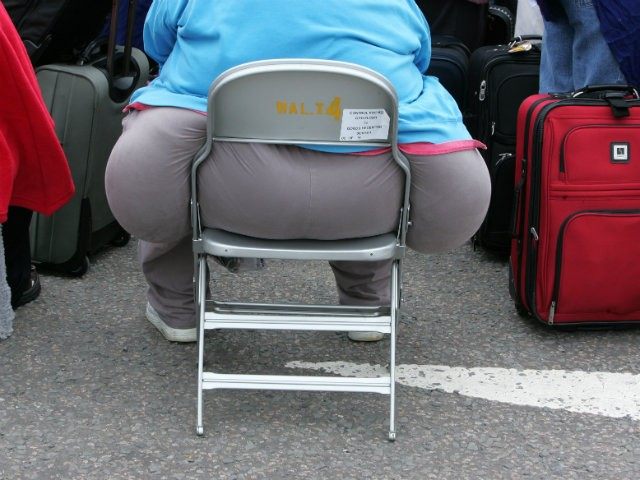As the British public let their belts out a notch to feast on chocolate and eggnog, NHS bosses are calling on doctors to report patients who put on weight. The head of the NHS has said schools, the food industry and the NHS all needed to pull together in a bid to tackle obesity.
Under a new scheme, GPs will be asked to identify anyone who has put on weight and is now at risk of diabetes – particularly those who are under 40. Those identified will be offered a pre-diabetes test, healthy lifestyle advice and close monitoring to ensure that they are eating healthily and exercising more, the Telegraph has reported.
New figures from across the EU show that Britain is the second most obese country in the Union, with 24.7 percent of her citizens now officially obese. She is second only to Hungary, 28.5 percent of whose citizens are obese. The European average is 16.7 percent, whilst Italy, Bulgaria, Sweden, the Netherlands, and Austria all have obesity levels at less than half the British rate.
Official statistics show that our waistlines have been expanding steadily over the last two decades. In 1993, the obesity rate in Britain was just 15 percent. Now, almost two thirds of British adults are classified as overweight or obese, whilst upwards of one third of primary school children fall into the same categories.
The stats come as a judge in the EU courts ruled that obesity can now be classified as a disability. But Simon Stevens, head of the NHS England, said that the ruling, which showed a fatalistic approach to the issue, was “daft”.
“The ghost of Christmases past reminds us that 20 years ago we didn’t have these problems as a nation,” Mr Stevens said. “The ghost of Christmases future tells us that if we get our act together – as the NHS, as parents, as schools, the food industry – we can get back in shape.
“Rather than recent daft judgments by the European court practically pretending that obesity is inevitable, in England in 2015 we’re going to start proving that it isn’t,” he added.
Mr Stevens said that he was drawing on his experience working in the US, where he lost 40lb on a workplace scheme which financially rewarded employees who lost weight, to formulate similar schemes in the UK.
The NHS currently spends £10 bilion a year treating diabetes, whilst a major study has shown that one in three Britons are currently at risk of developing the disease. “That’s why the NHS is going to be funding a new national programme, proven to work, that will offer tens of thousands of people at risk of diabetes proper support to get healthier, eat better and exercise more,” he said.
But losing just 5 to 7 percent of weight can reduce the risk by 60 percent. “If this was a pill we’d be popping it – instead it’s a well-designed programme of exercise, eating well and making smart health choices, and we’re going to start making it available free on the NHS.”
NHS organisations which have already had success with similar local schemes will be asked to register their interest in designing a national program by the end of January. Other schemes will encourage employers to offer workplace scheme, such as the American program which inspired Mr Stevens, which will offer prizes and vouchers to employees who successfully lose weight.
His comments have received support from anti-obesity campaigners. Tam Fry, from the National Obesity Forum, said: “After the all the food and drink consumed yesterday and today I wouldn’t be surprised if the UK had caught up with Hungary.
“We are calling for a national new year’s resolution in January to tackle the aftermath of turkey, pud and cake.”

COMMENTS
Please let us know if you're having issues with commenting.